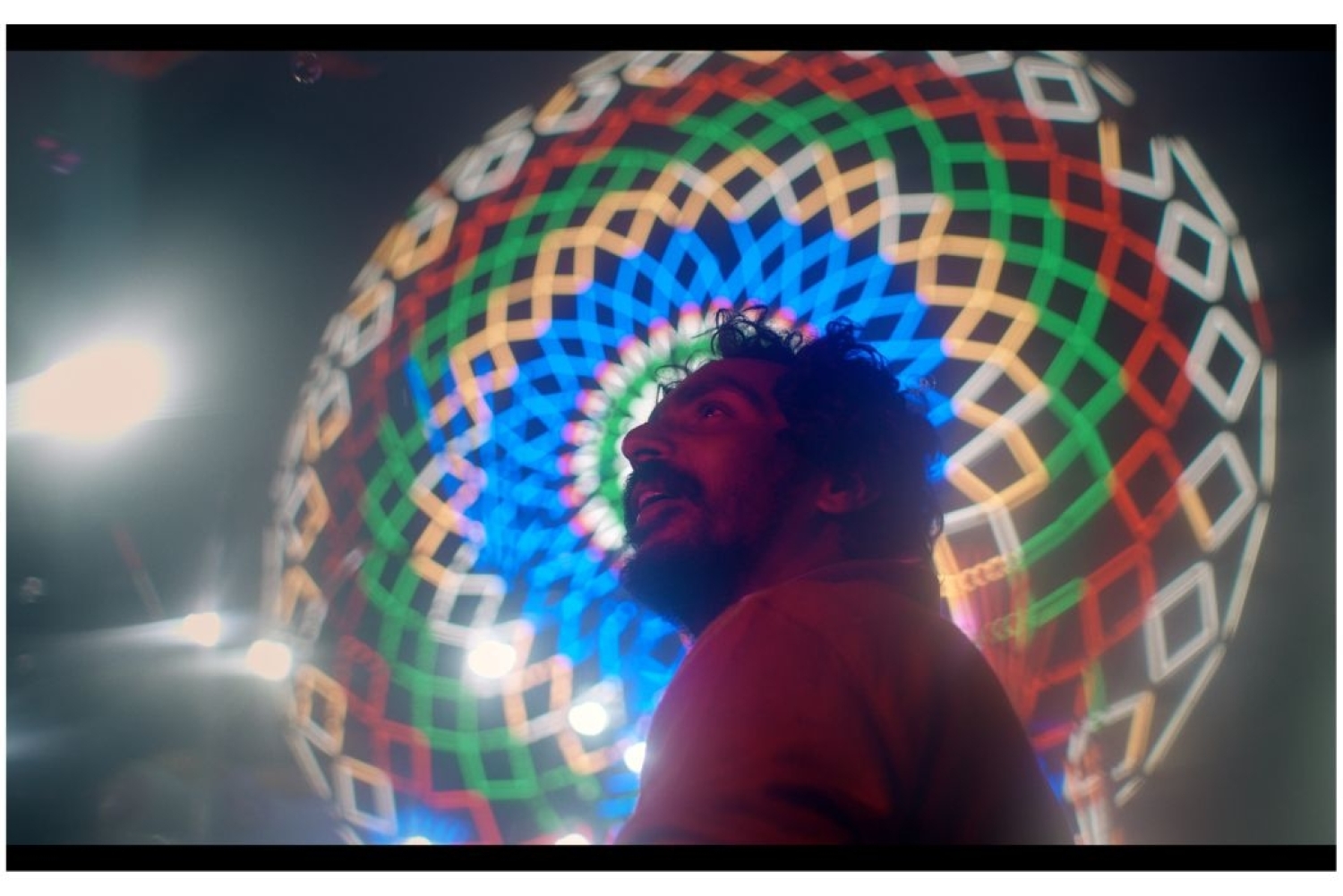

While shooting his debut feature, In Search of the Sky/Vimukt, Jitank Singh Gurjar called action for his actors while his crew staged fake fights beside the camera to distract the crowd. This allowed his actors to merge naturally into the crowd without drawing much attention. This strange anecdote from his time on set is noteworthy, especially since he was filming at one of the largest gatherings in history, the Maha Kumbh.
Moving away from the chaos, the story actually begins in a small village where a boy on the spectrum is born to an elderly couple struggling with poverty. They love him deeply, but the constant scrutiny from villagers drives them on a journey to the Maha Kumbh toward liberation, faith, and salvation—subjective experiences that often lead individuals down unknown paths filled with uncertainty. What is salvation, truly? Is it something others confer upon you? Is it bestowed by God? Or does it lie within, waiting to be discovered if only you choose to? Jitank's film poses similar difficult questions and may compel you to look inward if you are willing to surrender.
Set to premiere at the Toronto International Film Festival, Vimukt is a Braj-language indie film created through the collaboration of Jitank Singh Gurjar (Director/Screenplay Writer), Pooja Vishal Sharma (Writer/Producer), and Shelly Sharma (Cinematographer, Creative Director & Executive Producer).
We spoke with Jitank about this film. He grew up in a village akin to the one depicted in Vimukt. His early life was simple and close to nature, a world where every sound, every season, and every small gesture carried significance. ‘As a child, I viewed the world with curiosity and wonder, unfiltered by societal expectations. Life was slower, more immediate, and deeply sensory, shaping how I observe, feel, and ultimately tell stories. This perspective of noticing subtleties, silences, and the natural rhythms of life has profoundly influenced my approach to filmmaking today.’
Can you discuss your writing process? How did you immerse yourself in the characters' perspectives to keep them authentic and sensitive? Were there specific incidents, memories, or cultural references that served as the emotional foundation for the film?
I am still deeply connected to my culture, my people there, village and hometown, and my feelings and sensibilities continue to resonate with the life and people there. I’ve seen characters like those in the film and felt the depth of their sensibilities how they navigate challenging circumstances, how they adapt, and the choices they make to deal with life. Experiencing this firsthand helped me understand their inner world, which became the emotional foundation for the story.
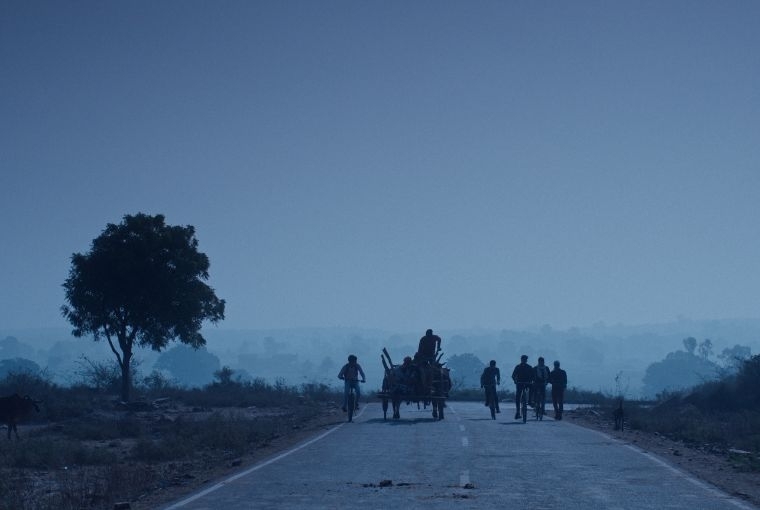
Freedom and entrapment often exist in blurred spaces in cinema. What kind of freedom does Vimukt truly explore? And what does 'Mukti' truly mean to you?
Even in Vimukt, freedom and entrapment often exist in blurred, complex spaces. The film explores a kind of freedom that is felt from within — the freedom to be true to your thoughts, emotions, and existence. For me, 'Mukti' is not just liberation from external constraints, but the freedom to be honest with yourself, your sensitivities, and your experiences. It’s a freedom that can be felt in life’s small moments, in the balance between oneself and the surrounding world, and in silence and subtle emotions.
There seems to be a social and philosophical layer within the narrative—was there a specific question you wanted your audience to carry with them after watching?
Yes, absolutely. The lives we live are deeply philosophical, often intertwined with religion and strong personal beliefs. The space in which we place this story also presents a philosophical dilemma the couple in the film navigates; the pressures of religion and society while nurturing their love for the children. In many ways, it reflects a universal truth: we all seek freedom from our problems and circumstances, yet complete escape isn’t always possible. Life is about making choices, and the film invites the audience to reflect on those delicate balances between love, duty, belief, and the desire for liberation.
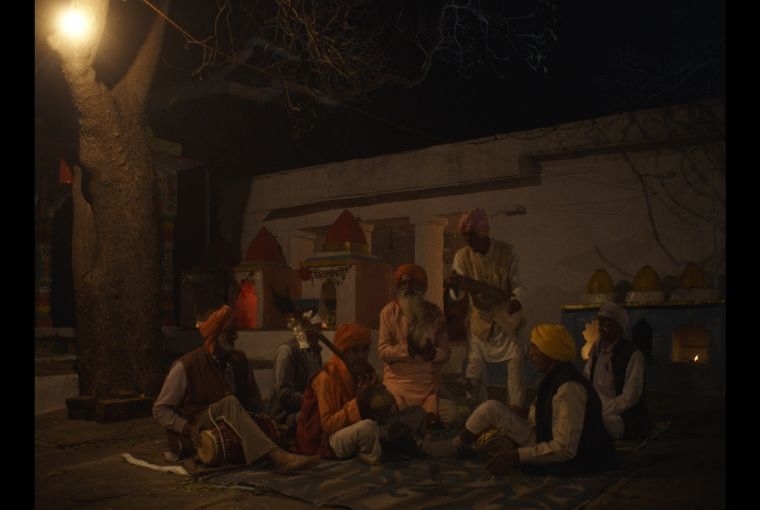
Can you talk a little about the casting process?
Nikhil [Yadav] was discovered by our producer Pooja [Vishal Sharma], and I was completely mesmerized by his audition. Meghna [Agarwal] came to us through the audition process, while Raghvendra [Bhadoriya] had previously played the lead in my last film, which was also based on rural folklore in similar landscapes.
Our process always begins with deeply understanding the characters, their psychology, their history, and their motivations. Once we design that framework, we conduct workshops to help the actors inhabit their roles fully. It’s about letting them become the character, not just perform it. This approach, combined with their talent and natural connection to the rural setting, allowed us to achieve performances that felt authentic, sensitive, and lived-in.
You shot at one of the biggest gatherings on the planet, the Maha Kumbh Mela; how did you manage that and what were the challenges that came your way?
We had a very small crew, so careful planning was essential. We did extensive recce beforehand to decide where each scene would be shot and what needed special attention. Shooting at the Maha Kumbh came with huge challenges the biggest being the massive crowds. To manage this, we asked our actors to stay in character and in costume at all times, no matter the chaos around them.
One clever solution we came up with was to have two team members stage a playful 'fight' beside the camera to distract the crowd. This allowed our actors to merge naturally into the crowd without drawing attention. On some days, the crowds were so dense that we couldn’t even bring vehicles close, so the team walked kilometres carrying all the equipment by hand. It was exhausting, but it helped us capture the scale and authenticity of the Kumbh in a truly immersive way.
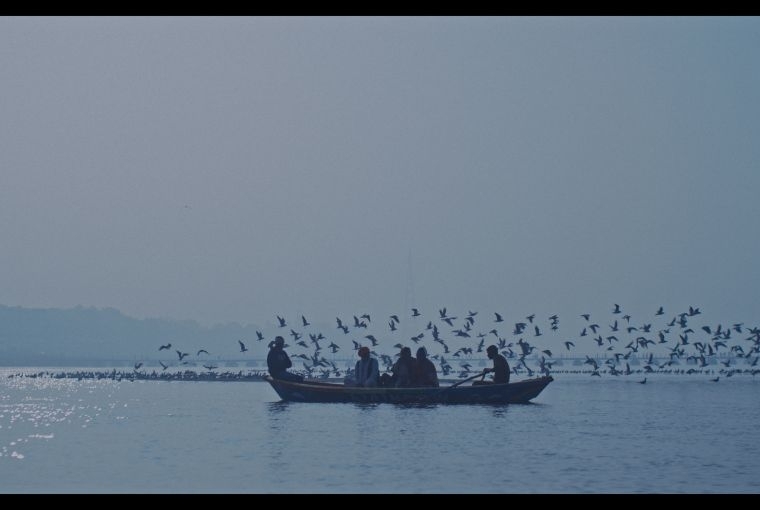
Rural India calls you back to tell its stories. What inspires you to share these narratives? Will your next story be similar?
As Martin Scorsese says, 'The most personal is the most creative'. Having lived these experiences, I feel I can explore them deeply and authentically. Yes, I do have more stories rooted in rural India that I want to tell, but I’m also excited to explore new terrains, stories set in cities, and other human experiences that are equally rich and complex. For me, it’s about following the story that resonates most, wherever it takes me.
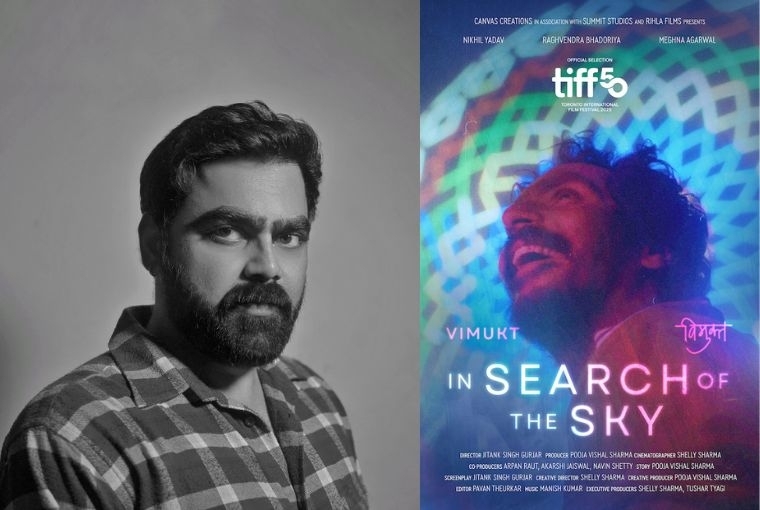
L; Jitank Gurjar, Director
Words Hansika Lohani
Date 4-9-2025